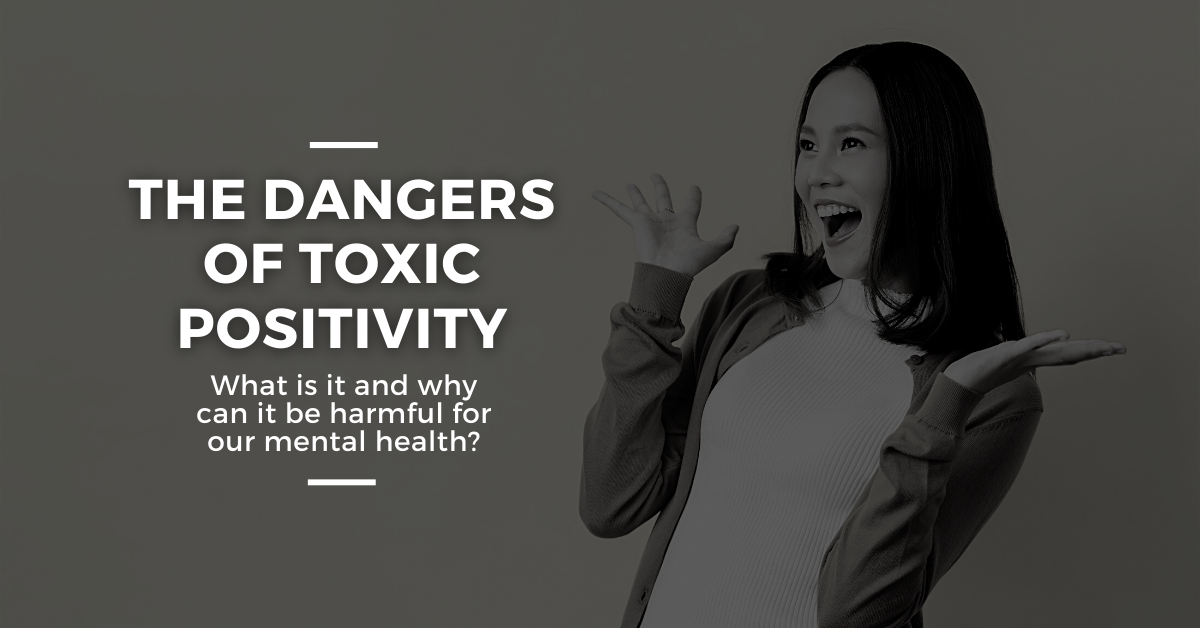Toxic positivity. If you haven’t heard this term before, at the very least, you’ve probably seen or heard tons examples of it:
- “I’m so sorry you’re going through that, but at least it’s not as bad as it could be!”
- “Just try to stay positive about it, and everything will be okay”
- “Everything happens for a reason, so don’t worry- it’ll all work out.”
- “On the bright side, it could’ve been way worse.”
- “Positive vibes only!”
When we’re going through hard times, it can be easy to shift to a mindset of toxic positivity. Or even more, it can be incredibly to shift to a toxic positivity mindset when we’re trying to support friends who are going through a hard time. So, what is toxic positivity? It’s defined as the belief that we should remain positive no matter how hard or difficult our situations may be. Toxic positivity is often the voice in our head telling us “Don’t feel sad, everything will be okay and someone else probably has it worse.”
The reason this is toxic is because it doesn’t give us the space to feel our emotions or process our experiences. When we hide behind toxic positivity, it causes us to dismiss our feelings and the feelings of the people we’re trying to support which can be very invalidating. It can also cause a lot of guilt, because it brings us to believe that if we can’t be positive in the face of hardship, then there must be something wrong with us.
So how do we transition out of a space of toxic positivity?
- Welcome all the feelings: Whether they’re good emotions or bad emotions, allow yourself to feel all the emotions. Ask yourself why you’re feeling that way or what happened that could’ve caused that feeling. Allow yourself to spend time in those feelings instead of rushing to dismiss them.
- When supporting others, focus on listening, not responding: When we’re supporting those going through a hard time, it can be easy to want to fix the situation. However, most of the time, our friends just need someone who will listen to them and validate their feelings. Avoid saying things like “On the bright side…” or “At least it’s not as bad as it could’ve been.” Instead, recognize their pain by saying things like “I’m so sorry you’re going through this. That’s really hard, and you deserve to feel upset” or “You deserve to feel this way, and I’m here to listen whenever you need me.”
- Don’t resort to social media when you’re struggling: When we go on social media, we often see the positive quotes and the people who have it all together. Both can minimize our emotions and make it seem like we’re wrong for feeling upset. Instead of resorting to social media, try calling someone you trust to talk through your emotions. Or, try seeing a counselor.
Unfortunately, toxic positivity is all around us. It’s hard to avoid it all together, but we CAN be intentional about working towards minimizing the effects of toxic positivity in our own lives.
By Lexi Breunig

